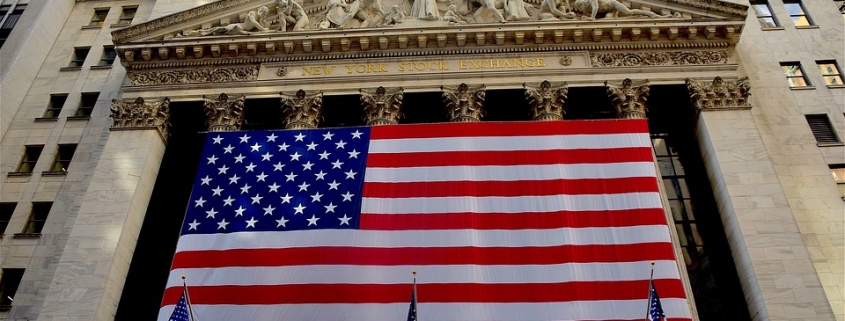Why a US-China Trade War Effects Recruitment Firms Everywhere | World Recruitment News
The threat of looming economic stand-off between the world’s two great economies could threaten hiring prospects closer to home.
We rarely venture too far across the ocean in our coverage of UK recruitment news. But when global geopolitical events impact the recruitment market, those effects are unlikely to respect national borders. A looming trade war between the United States and China is therefore likely to trouble UK recruitment firms – even those with no direct business interests in either territory.
This week, US payroll processing agency ADP published its data for July 2019. Why should this matter to us? Because the data suggests a US jobs market struggling to maintain growth – and this could have a wider, knock-on effect.
In fact, ADP found a slight increase in private payrolls over the period in question. However, the numbers will still concern many, as they offer no relief from the sustained downtrend of recent months.
Private payrolls for July 2019 increased by 156,000 – beating market predictions of 150,000 by some 6,000 vacancies. This also represents month-on-month growth from the 112,000 expansion in June. Yet current levels still fall short of the first half of 2019, and are far below job creation rates for all of 2018.
Specific industries and sectors have taken the brunt of the economic slowdown. US manufacturing in particular saw stagnant growth. While the sector ended 2018 with 25,000 new jobs being created every month, data released this week shows the sector is now “just barely positive” for job creation.
Another “canary in the mineshaft” for global recruitment firms?
The data fits into an emerging picture of declining health for the US economy. This Wednesday, the Federal Reserve cut the base rate of interest by a quarter per cent (0.25%).
The compound effects of slow job creation and sluggish inflation rates is largely seen as a negative sign for forecasters. Chairman of the Federal Reserve Jay Powell said that a combination of low prices and interest rates would create an “unhealthy dynamic” for the US economy.
The warning has been echoed by a chief economist at the ratings agency Moody’s, according to the Financial Times.
Mark Zandi warned that the US jobs market was reaching a tipping point as enterprises woke up to the reality that a stand-off was unlikely to be resolved quickly. “Business held on, thinking maybe the trade war would wind down – and that hasn’t happened,” he said.
Mr Zandi pointed to the fact that SMEs were those most likely to feel the brunt of any downturn. “Small businesses are suffering the brunt of the slowdown,” he said.
Mr Zandi explained that trade stand-offs are forcing firms to re-stucture supply chains. While this is an annoyance for larger entities, they have sufficient clout to dictate the terms of any re-balancing. But SMEs are frequently left to take what is on offer – and have little room to manoeuvre. “It’s very much like a tax increase on them; and it wipes out their margins.”
Why economic growth requires an internal balance
Similarly, Mr Zandi points to “labour hoarding” hiring patterns not seen since the dotcom bubble of the early 2000s. He suggests that larger entities in specialist fields like accounting and financial services are increasing their hires now, to secure requisite talent for the future. It is leaving smaller firms unable to compete with the aggressive recruiting tactics of their larger competitors.
The observation is reflected in the ADP data, which finds just 11,000 new positions being created within smaller firms. Medium sized companies are making 67,000 new hires every month. Larger companies and multinationals are expanding by 78,000 new hires every month.
The direct effect of this is that the gap between the largest firms (which offer the smallest percentage rate of growth for the economy) and the smallest (which provide the greatest portion of economic growth) is becoming wider.
A protracted period of uncertainty is likely to only reinforce the current hiring patterns, and will lend itself to the “unhealthy dynamic” about which the Fed issued its warning.
Two weeks ago, we reported on a similar warning sign for UK recruitment agencies about the risk of recession. Job creation hit a six year low, earlier this week.







![police-officers-3546836_960_720[1] police recruitment spending review](https://cdn.ebossrecruitment.com/wp-content/uploads/2019/09/05093713/police-officers-3546836_960_7201-180x180.jpg)
![person-731479_960_720[1]](https://cdn.ebossrecruitment.com/wp-content/uploads/2019/11/28112839/person-731479_960_7201-180x180.jpg)




